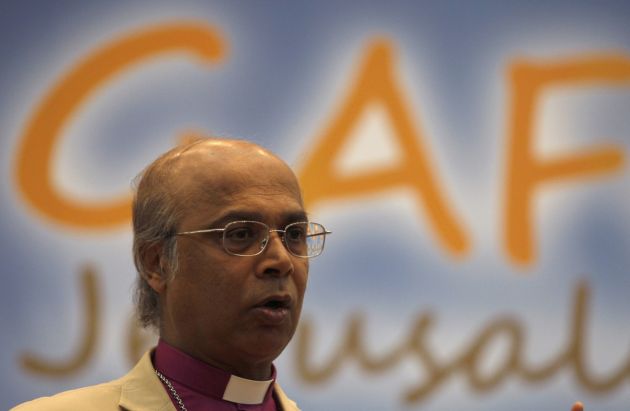Nazir-Ali's move to Catholicism seen as 'significant' in 'evangelical resistance' to secular Anglican progressivism

A prominent and retired Church of England bishop who was once a potential future Archbishop of Canterbury and spiritual leader of the worldwide Anglican Communion is now in the Catholic Church.
Michael Nazir-Ali becomes one of the most high-profile Anglican clergymen to make the journey to Rome possibly since Father Ronald Knox in 1917, the National Catholic Register reported October 14.
He was received into the church on Sept. 29, the feast of St. Michael the Archangel and All Angels and will be ordained a Catholic priest "in due course."
This is according to a statement issued by the Personal Ordinariate of Our Lady of Walsingham and the Catholic bishops' conference of England and Wales.
"This is without doubt one of the most politically and theologically significant changes of allegiance in the Christian world for some time," wrote Gavin Ashenden, a former chaplain to Britain's Queen Elizabeth II in Christian Today on Oct. 14.
There have been a number of high-profile conversions including a former Bishop of London. So why should that of Michael be so nuclear in ecclesiastical and political life?
"The answer is that he formed the center of a nucleus of evangelical resistance to the slippage in the secular progressive accommodation embarked on by the Anglican Church.
IGNORING GROWTH OF ISLAM
"He was particularly outspoken on the serious consequences of ignoring the implications of the growth of Islam, and the importance of the Christian definition of marriage being restricted to a man and a woman with the intention of having children."
Bishop Nazir-Ali's conversion to Catholicism is not just one more high profile move from what has become the periphery of Christianity to the center wrote Ashnenden.
He said it signals "an invitation to a serious reconfiguration of those Christian individuals and organisations in a fresh alliance against a hostile secularism. It invites the wider Church to turn its back on the crisis that erupted five hundred years ago but no longer has relevance."
The former Anglican bishop said he believed the "Anglican desire to adhere to apostolic, patristic and conciliar teaching can now best be maintained in the Ordinariate."
He said he was "looking forward to receiving from the riches of other parts of the Church, while perhaps making a modest contribution to the maintenance and enhancement of Anglican patrimony within the wider fellowship."
"Ministry in the Church of Pakistan, in the Middle East generally, in the Church of England and the wider Anglican Communion remains precious to me and I see this as a further step in the ministry of our common Lord and of his people," Nazir-Ali said. "At this time, I ask for prayers as I continue to pray for all parts of the Church."
Benedict XVI, when he served as pope, established the personal ordinariate in 2010, a canonical structure through which Anglicans wishing to enter into full communion with the Catholic Church could do so while retaining their Anglican patrimony.
Born in Karachi, Pakistan in 1949, Nazir-Ali has an Anglican, Catholic and Muslim background.
His father converted from Shia Islam and he was educated in Catholic schools in Karachi. He was received into the Anglican church of Pakistan at the age of 20, ordained an Anglican vicar in 1976, and consecrated Bishop of Raiwind, Pakistan, in 1984.
Nazir-Ali went on to excel as a scholar, receiving many academic awards including from the Universities of Karachi, Oxford, and Cambridge, as well as a Lambeth Doctor of Divinity.